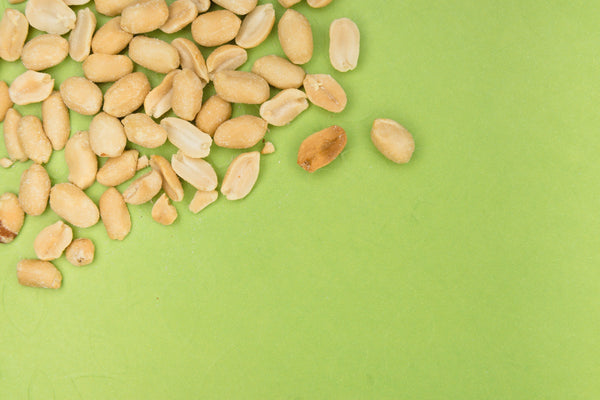Magnesium Gut Health, Digestion and Deficiency: What’s the Connection?
share this article

Magnesium is an essential mineral that plays a role in maintaining proper gut health and digestion [1]. Around 52% of the magnesium stores located in the bone and approximately 40% of peak bone mass accumulate by adolescence [12].
Kids require increased magnesium intake because of constant growth and development [10]. It is estimated that at least 42% of young adults have an ongoing magnesium deficiency [10]. Therefore, it’s important to ensure that our little ones are meeting their daily magnesium requirements to support their overall health.
Human bodies can’t produce magnesium, so we need to consume it through the diet or through supplements. We’ve discussed how magnesium can help support constipation before, but how does a deficiency affect gut health?
Let’s explore the connection between magnesium deficiency, gut health and digestion, along with potential solutions to maintain magnesium levels in both our bodies and our kid’s growing bodies.
Factors that Reduce Magnesium Absorption
The human body only absorbs 30% to 40% of magnesium intake and expels the rest, either via the kidneys or the bowels [11]. While extreme cases of magnesium deficiencies are rare in the United States, inadequate intake of magnesium-rich foods may contribute to lower levels of magnesium in the body [10]. Aside from poor intake, other possible factors that reduce magnesium absorption include:
- Picky Eating Habits.Children, particularly those who are picky eaters may be more prone to magnesium deficiencies [10].
- Soil Quality.The quality of soil and farming practices also play a role in obtaining an adequate daily intake of magnesium, as certain fertilization and agricultural techniques have depleted soils of minerals without replenishment [10].
- Laxative Use.Prolonged laxative use and diarrhea can lead to a loss of magnesium in the gastrointestinal tract, a potential cause for a magnesium deficiency [10].
Magnesium Helps Regulate Digestive Enzymes
Magnesium is involved in the activation and regulation of digestive enzymes that break down food in the stomach and intestines. Low magnesium levels can potentially impair enzyme function, resulting in poor digestion and nutrient absorption in adults [3].
Daily reads to help your little ones lead happier and healthier lives.
Join the
Happy Gut Club
Magnesium Helps Gut Motility and Peristalsis
Magnesium plays a vital role in maintaining proper gut motility and facilitating peristalsis, the wave-like contractions that move food through the digestive tract. Inadequate magnesium levels can disrupt these processes, leading to constipation, bloating, and irregular bowel movements in adults [4].
Magnesium Impacts the Gut Microbiota
Research suggests that magnesium deficiencies can alter the composition and diversity of the gut microbiota [5]. A healthy gut microbiome is essential for proper digestion, nutrient absorption, and overall gut health. Imbalances in the gut microbiota have been linked to various gastrointestinal disorders, including inflammatory bowel disease (IBD) and irritable bowel syndrome (IBS) [5].
What are the signs of a Magnesium Deficiency?
Although severe deficiencies are rare in the United States, some symptoms of a magnesium deficiency include:
- Nausea
- Fatigue
- Muscle cramps / spasms
- Constipation
Preventing a Magnesium Deficiency: How to Maintain Proper Levels
-
Dietary Sources:
- Increasing magnesium-rich foods in your diet can help address deficiency and support gut health. For more magnesium rich sources of food to include in your kiddo’s diet, check out our list of Top 10 Magnesium-Rich Foods for Kid’s Gut Health. Incorporating these foods into your meals can provide a natural boost of magnesium.
-
Magnesium Supplements:
- While severe deficiencies are rare in the United States, it's still important to make sure your kids are getting enough magnesium for their growing bodies. There are different types of magnesium supplements available, such as magnesium citrate, magnesium glycinate, and magnesium oxide. To learn more about these types, read our blog post on Magnesium and Gut Health: The Best Types for a Healthy Digestion. Before giving your kiddos any new supplements, it's always a good idea to talk to their pediatrician or healthcare professional to make sure it's the right choice for their specific needs.
-
Probiotics and Prebiotics:
- Research indicates that consuming probiotics, specifically lactobacillus, and magnesium in the form of magnesium oxide may help support functional constipation in kids over six months by improving stooling frequency [7]. Prebiotic fiber, like our Growing Up Prebiotics, provide nourishment to improve friendly bacteria in the gut [9]. Fiber ferments in the gut to produce short-chain fatty acids, which stimulates gut motility and increases mineral absorption (including both magnesium and calcium) in the colon [6,8].
-
Lifestyle Modifications:
- Limiting the consumption of processed foods and refined sugars can help maintain optimal magnesium levels. Additionally, managing stress levels could also support overall gut health and magnesium absorption [6].
















